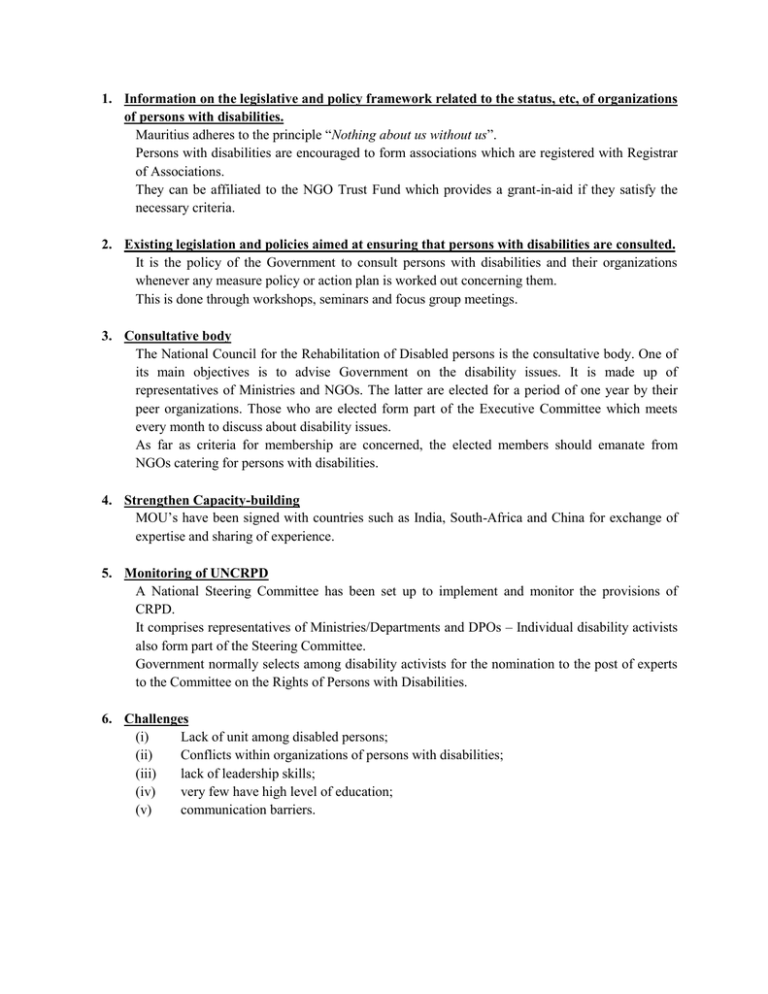1. Information on the legislative and policy framework related... of persons with disabilities.
advertisement

1. Information on the legislative and policy framework related to the status, etc, of organizations of persons with disabilities. Mauritius adheres to the principle “Nothing about us without us”. Persons with disabilities are encouraged to form associations which are registered with Registrar of Associations. They can be affiliated to the NGO Trust Fund which provides a grant-in-aid if they satisfy the necessary criteria. 2. Existing legislation and policies aimed at ensuring that persons with disabilities are consulted. It is the policy of the Government to consult persons with disabilities and their organizations whenever any measure policy or action plan is worked out concerning them. This is done through workshops, seminars and focus group meetings. 3. Consultative body The National Council for the Rehabilitation of Disabled persons is the consultative body. One of its main objectives is to advise Government on the disability issues. It is made up of representatives of Ministries and NGOs. The latter are elected for a period of one year by their peer organizations. Those who are elected form part of the Executive Committee which meets every month to discuss about disability issues. As far as criteria for membership are concerned, the elected members should emanate from NGOs catering for persons with disabilities. 4. Strengthen Capacity-building MOU’s have been signed with countries such as India, South-Africa and China for exchange of expertise and sharing of experience. 5. Monitoring of UNCRPD A National Steering Committee has been set up to implement and monitor the provisions of CRPD. It comprises representatives of Ministries/Departments and DPOs – Individual disability activists also form part of the Steering Committee. Government normally selects among disability activists for the nomination to the post of experts to the Committee on the Rights of Persons with Disabilities. 6. Challenges (i) Lack of unit among disabled persons; (ii) Conflicts within organizations of persons with disabilities; (iii) lack of leadership skills; (iv) very few have high level of education; (v) communication barriers.





